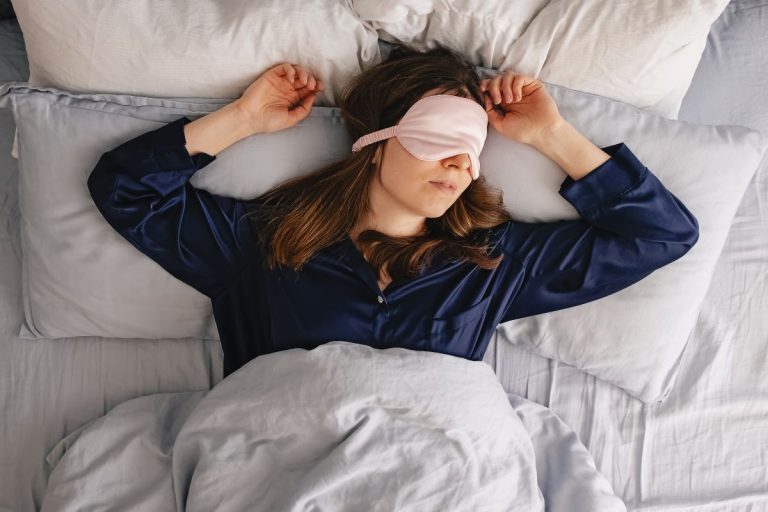Although we often ignore it due to our busy lifestyles, our body also has a clock.
This clock, also known as a circadian clock, dictates the rhythm our body takes throughout the day. It also tells us when it’s time to sleep by releasing neurotransmitters and other chemicals such as melatonin. It also signals when it’s time to be awake.
However, due to busy lifestyles and obligations, we often forget how to follow this internal clock.
Luckily, you can change your circadian rhythm and clock with a few natural lifestyle changes that we’ll detail in this article.
Good planning and organizations are the keys to maintaining a proper circadian rhythm, but there are a few lifestyle changes and routines that you will have to stick to for this to work.
The circadian rhythm is affected by about 20,000 neurons that are clustered together as the suprachiasmatic nucleus which is located in the hypothalamus. Our circadian rhythm is affected by our senses throughout the day, by the light we see and the noise we hear.
Based on our sensory affections, our brain dictates when it’s time to rest or sleep. When our eyes see light, whether it is natural or artificial, receptors in the brain perceive that it’s still not time to sleep and our brain releases chemicals that help our body to stay awake. One of those is also the stress hormone cortisol.
Aside from the light, our brains use other signals, also known as zeitgebers to decide the circadian rhythm, some of those include the metabolic rate as a result of food intake, social interactions with other people, and both body and room temperature.
Circadian rhythm is also important because it affects the production of hormones and neurotransmitters in the body.
As mentioned earlier, when we wake up, our body releases the cortisol hormone, which is our primary stress hormone that indicates we’re in danger or some other unpleasant situation. However, besides that, cortisol increases our wakefulness and alertness.
After the hormone wears off and as the times during the day change, our brain begins to feel tired and as the night falls, it starts releasing melatonin to signal it’s time for bed.
Factors That Affect The Circadian Rhythm
To understand how we can change our circadian rhythm, it’s important to understand the factors that affect it. Here’s a list of things that affects the circadian rhythm.
To change your internal body clock, you need to find out which of these lifestyle habits or issues affect your sleep patterns.
Diet
Similarly as with everything in your life, diet can affect your circadian rhythm and sleep patterns too. As mentioned earlier, eating in the evening, especially if it’s energizing food can trigger your metabolism, raising your body temperature, and making you less tired in the evening.
Caffeine
Drinking too much coffee, caffeine pills, energy drinks, and other caffeine-stimulators can affect your circadian rhythm, especially if you drink more than the prescribed amount, and too late in the evening. A study shows that caffeine can affect your internal body clock.
Traveling
People who travel often reset their internal clocks, especially if they travel to places where jet lag is expected. Changing your time zone too much can hurt your sleep patterns.
Screen time
We said earlier that light is the primary factor that affects the circadian clock. Too much screen time, especially in the evening can have negative results for your sleep cycles.
Period
Women who are on period and PMS go through a series of hormonal changes that affect the circadian rhythm and sleep patterns.
Night shifts
Medical workers, police officers, and others who often change their shifts can experience a change in their sleep patterns, especially if they change their shifts often.
Sleeping longer
Adults need 7 to 8 hours of sleep for optimal rest. If you sleep longer than usual, like during weekends, holidays, and vacations, your circadian rhythm will be affected.
How to Change Your Circadian Rhythm?
Do you identify with some of the lifestyle habits from above? If you do, the tips below will help you easily adjust your circadian rhythm to how you need it to be.
Remember that there are both early (morning) birds and night owls and that depending on our lifestyle we can be both.
Some studies suggest that night owl have a slower circadian rhythm that lasts more than 24 hours. But, that can still be fixed, with the tips below.
Strict Sleep Routine
For the circadian rhythm to be in sync with your lifestyle habits, you need to be able to wake up and go to sleep every day at the same time.
Keeping a regular sleep schedule isn’t easy, especially if you have more work to finish and attend to. However, a strict sleep schedule will help you regulate your circadian rhythm and help you stay alert and rested during the critical parts of the day.
- Invest in a planner that will help you schedule your daily activities and obligations and allow you to wake up and go to sleep at the same time.
- Adjust the body to your new circadian rhythm by going to sleep and wake up using an alarm.
- Reduce screen time in the evening.
- Even if you can’t fall asleep till late, set the clock at the same time every morning to move your circadian rhythm.
Sync Your Diet With The Circadian Rhythm
Studies show that synchronizing your meals with circadian rhythms can help you regulate your sleep patterns. Your body responds differently at different times and that could help you stay alert when you’re normally supposed to get tired and get tired when it’s the right time for that.
- Use your plans and daily routine to set the exact times with your meals.
- Sometimes, this won’t work, so you can trick your brain by setting different meal times to adjust your circadian rhythm to signal you’re tired at different times.
Stick To One Shift
When you’re a worker who works in different shifts throughout the day, it’s extremely hard to adjust your circadian rhythm. Working in the night means that you’ll have to sleep in the day and that also means a lot of pattern changes, like diets, light, and more.
According to research, 15 million Americans struggle with rotating and night shifts. Changing your shifts too frequently can harm your circadian rhythm as you may feel sleepy when you should normally stay awake.
- Don’t sleep, take naps throughout the day to make up for lost rest. Having a longer sleep on a night shift when your shifts normally change can be bad for your circadian rhythm.
- Stick to one shift and rest on the weekend.
Practice Exercise And Work Therapy
Exercising is a great way to improve your sleep cycle and get enough night rest through the night. There is a lot of studies showing that exercise and gym work can have great benefits for your night rest.
However, it’s not always like that. Exercising too close to your bedtime can disrupt your circadian rhythm and make your nights sleepless.
- Avoiding exercising at least 3 hours before bedtime.
- If you have to exercise before bedtime, avoid gym and cardio, and focus on light exercises like pilates and yoga.
- Take small power naps after exercising, if you exercise in the morning.
Take Caffeine At The Right Times
Caffeine is the most popular legal drug that stimulates your energy and allows you to stay alert and awake easier. However, if you exceed the daily dose by drinking too much coffee or pills, you can disrupt your sleep patterns.
- Don’t exceed the maximum daily intake for caffeine which is 400mg.
- Don’t drink coffee and other caffeine-rich drinks like the energy drinks just before bedtime.
- Drink coffee, tea, or caffeine pills at the same time of the day, every day.
Try Taking Magnesium Or Melatonin
Melatonin is a hormone released by our brain when it’s time to sleep. It’s one of the chemicals that control our circadian clock.
That’s why melatonin supplements can help you fall asleep easier. Additionally, magnesium is a great mineral that will help you sleep at night.
- You can drink magnesium-citrate cocktails 1 to 2 hours before bedtime.
- Don’t use melatonin to improve chronic insomnia, it’s used to help your brain adjust to a new bedtime.
- Take a dose of 0.5 mg of Melatonin a few hours before bedtime.
Avoid Too Much Screen Time
Nowadays, we’re bound to our phones and computers. What more, we live in bright cities that are light-polluted.
Too much screen time and exposure to other artificial lights can make your brain feel like it’s not yet time to sleep and make your brain release cortisol.
- Avoid using your computer and phone late at night.
- Create a dark sleep environment free of artificial lights when you’re heading to sleep.



